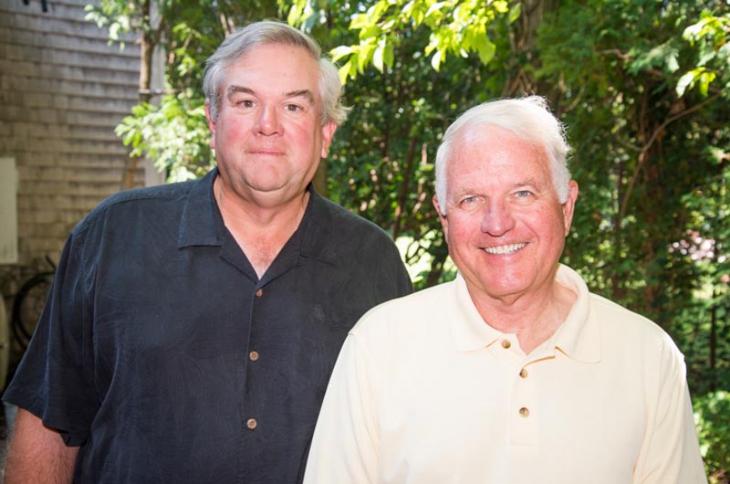Government Grants
Business Grants
Home Owner Programs
Federal Programs
About Us
Volunteer Based Early Detection Program
This agreement between the U. S. Fish and Wildlife Service, National Wildlife Refuge System (NWRS) and Invasive Plant Control (IPC) is entered into in support of early detection of new invasive plant infestations on national wildlife refuges.
Early detection of new infestations of invaders is acknowledged to be one of the most cost-effective methods for managing invasive plants.
Many refuges in the National Wildlife Refuge System (NWRS) recognize this and are in need of technical support and tools for implementing the early detection concept with citizen scientists and volunteers.
This is a pilot project that will take place in Region 5 and will serve as a model for replication across the NWRS.
Justification for Single Source Determination:
In accordance with Department of the Interior guidance (505 DM 2. 14), the USFWS provides notice of its intent to make a single-source award in the amount of $39,87 5. 00 via a Cooperative Agreement with the Invasive Plant Control, Inc.
Competition is not practicable for this project for the following reason.
The applicant?s Unique Qualifications:
Invasive Plant Control (IPC) is uniquely qualified to provide refuges in the northeast (Region 5) with technical support for early detection of new invasive plants.
The IPC staff member who will coordinate this project is located in the northeast and has an extensive network of collaborators, including citizen scientists and volunteers, through established partnerships with local organizations, such as the Invasive Plant Atlas of New England, the Nature Conservancy, a variety of local universities, and others.
IPC staff is also uniquely qualified due to their specific technical expertise.
IPC staff specializes in recruiting and training citizen scientists and volunteers for early detection of invasive plants.
Through working with IPC on this project, the NWRS seeks to enhance and strengthen the existing capabilities of individual refuges to utilize citizen scientists and volunteers to practice early detection; and, to develop collaborative networks among refuges that enable identification and tracking of new invaders before they arrive on refuge lands.
This will be achieved by facilitating the sharing of information and data through a web-based computer system, conducting workshops to provide refuge staff with new data on emerging early detection species in the region, developing and training citizen scientists and volunteers to work with staff as early detectors within these networks, creating a quick-check laminated field guide and training materials, and training staff to educate and maintain the localized network as part of a National Early Detection Network currently being developed by USGS.
Early detection of new infestations of invaders is acknowledged to be one of the most cost-effective methods for managing invasive plants.
Many refuges in the National Wildlife Refuge System (NWRS) recognize this and are in need of technical support and tools for implementing the early detection concept with citizen scientists and volunteers.
This is a pilot project that will take place in Region 5 and will serve as a model for replication across the NWRS.
Justification for Single Source Determination:
In accordance with Department of the Interior guidance (505 DM 2. 14), the USFWS provides notice of its intent to make a single-source award in the amount of $39,87 5. 00 via a Cooperative Agreement with the Invasive Plant Control, Inc.
Competition is not practicable for this project for the following reason.
The applicant?s Unique Qualifications:
Invasive Plant Control (IPC) is uniquely qualified to provide refuges in the northeast (Region 5) with technical support for early detection of new invasive plants.
The IPC staff member who will coordinate this project is located in the northeast and has an extensive network of collaborators, including citizen scientists and volunteers, through established partnerships with local organizations, such as the Invasive Plant Atlas of New England, the Nature Conservancy, a variety of local universities, and others.
IPC staff is also uniquely qualified due to their specific technical expertise.
IPC staff specializes in recruiting and training citizen scientists and volunteers for early detection of invasive plants.
Through working with IPC on this project, the NWRS seeks to enhance and strengthen the existing capabilities of individual refuges to utilize citizen scientists and volunteers to practice early detection; and, to develop collaborative networks among refuges that enable identification and tracking of new invaders before they arrive on refuge lands.
This will be achieved by facilitating the sharing of information and data through a web-based computer system, conducting workshops to provide refuge staff with new data on emerging early detection species in the region, developing and training citizen scientists and volunteers to work with staff as early detectors within these networks, creating a quick-check laminated field guide and training materials, and training staff to educate and maintain the localized network as part of a National Early Detection Network currently being developed by USGS.
Related Programs
Service Training and Technical Assistance (Generic Training)
Department of the InteriorRelevant Nonprofit Program Categories
Obtain Full Opportunity Text:
Not Available
Additional Information of Eligibility:
This is single source funding for Invasive Plant Control for the Volunteer Based Early Detection for National Wildlife Refuges Program, and no other applicant need apply.
Full Opportunity Web Address:
Contact:
Kay Shipp Administrative Officer Phone 703-358-2510
Agency Email Description:
Work E-Mail
Agency Email:
Kay_Shipp@fws.gov
Date Posted:
2009-08-11
Application Due Date:
2009-08-12
Archive Date:
2009-09-11
Social Entrepreneurship
Spotlight
New Vineyard Philanthropy Group Supports Island Youth

MVYouth, a newly formed Vineyard philanthropy group with a mission to support Island youth, will pledge $4 million over the next four years to a diverse set of youth causes.

